IN CONVERSATION with Fatma Fahmy
IMAGES BY FATMA FAHMY
WORDS BY NEHAA BIMAL
The motivation behind PWB’s Revolutionary Storyteller Grant recipient Fatma Fahmy’s project “The Lost Lake” began on her visits to Lake Qarun, an ancient natural lake in southwest Cairo. At this time, she was starting to venture into street and daily life photography. “I visited Lake Qarun twice in 2017 to document moments beside the lake’s shoreline, and I could see the number of fishermen in the area were decreasing noticeably,” she says.
Portrait of visual storyteller Fatma Fahmy by Reda Khaled
From 2017 to 2021, Fahmy collated a collection of images from the community. With a B.A. degree in Chemical Engineering from Cairo University, Fahmy wanted to focus on environmental concerns and social issues in Egypt as a visual storyteller and documentary photographer. “I hope and I will fight for anything to protect the world from pollution. This is my message as a photographer and an engineer, to protect life for communities,” she says. Increasing water salinity, industrial pollution and domestic waste are all responsible for the deterioration of Lake Qarun, a protected area. This in turn has impacted the livelihoods of the fishing communities in the village of Ezbat Soliman who consider the area home.
“The story deeply affected me because despite the situation facing the fishermen, there’s still hope for change in the next ten years. There’s a lot of love in the relationship between the fishermen and Lake Qarun and they are working hard to protect their land. The story helped connect me to my roots in Egypt as well,” she says.
With the support of the PWB Revolutionary Storyteller Grant, “The Lost Lake” has received international attention as a shortlist finalist for the Sony World Photography Award in the Environment category. But Fatma also wanted to make her Protectors of the Sacred campaign actionable, and she initially struggled to spotlight Lake Qarun and the issues facing it.
“I hope and I will fight for anything to protect the world from pollution. This is my message as a photographer and an engineer, to protect life for communities.”
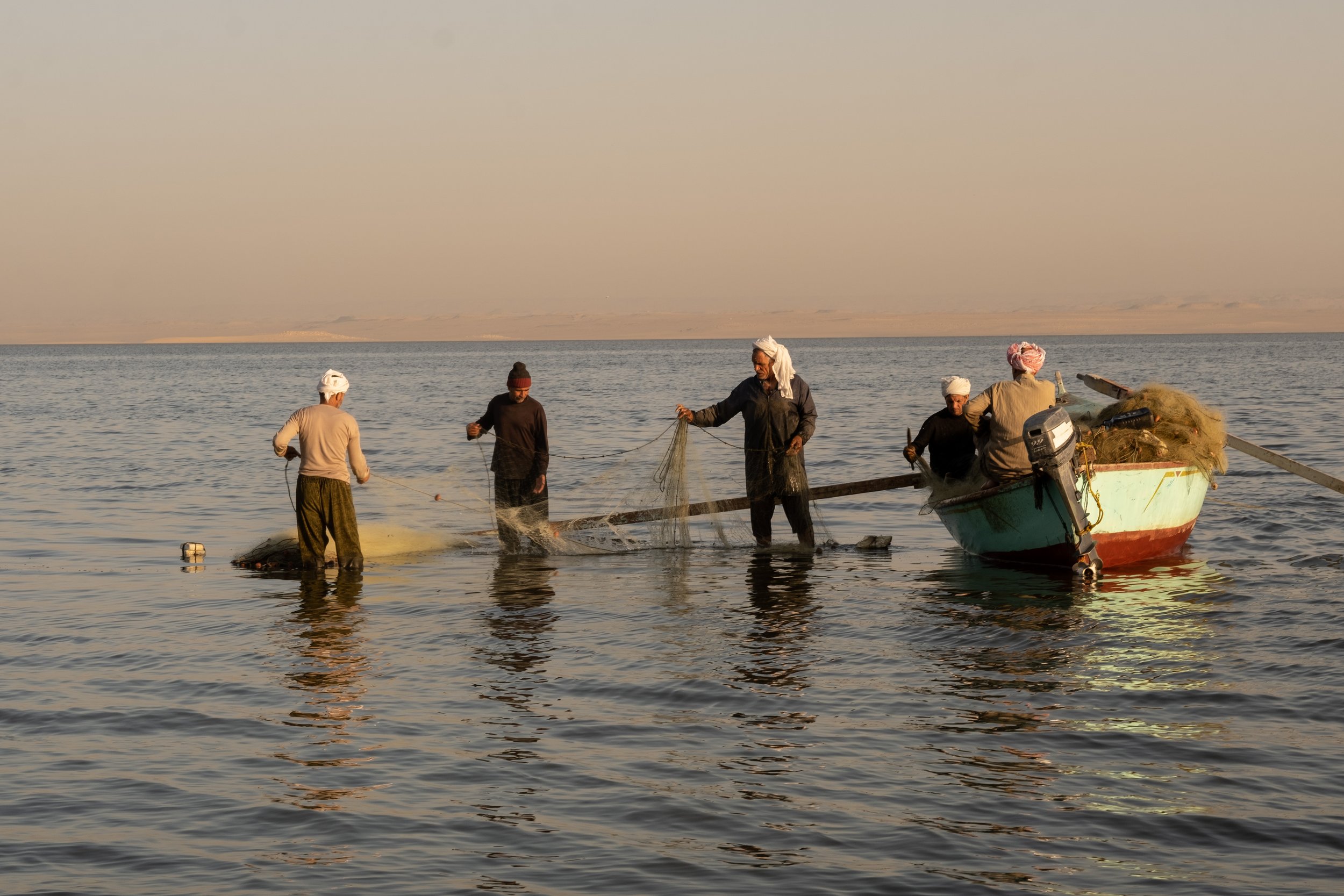
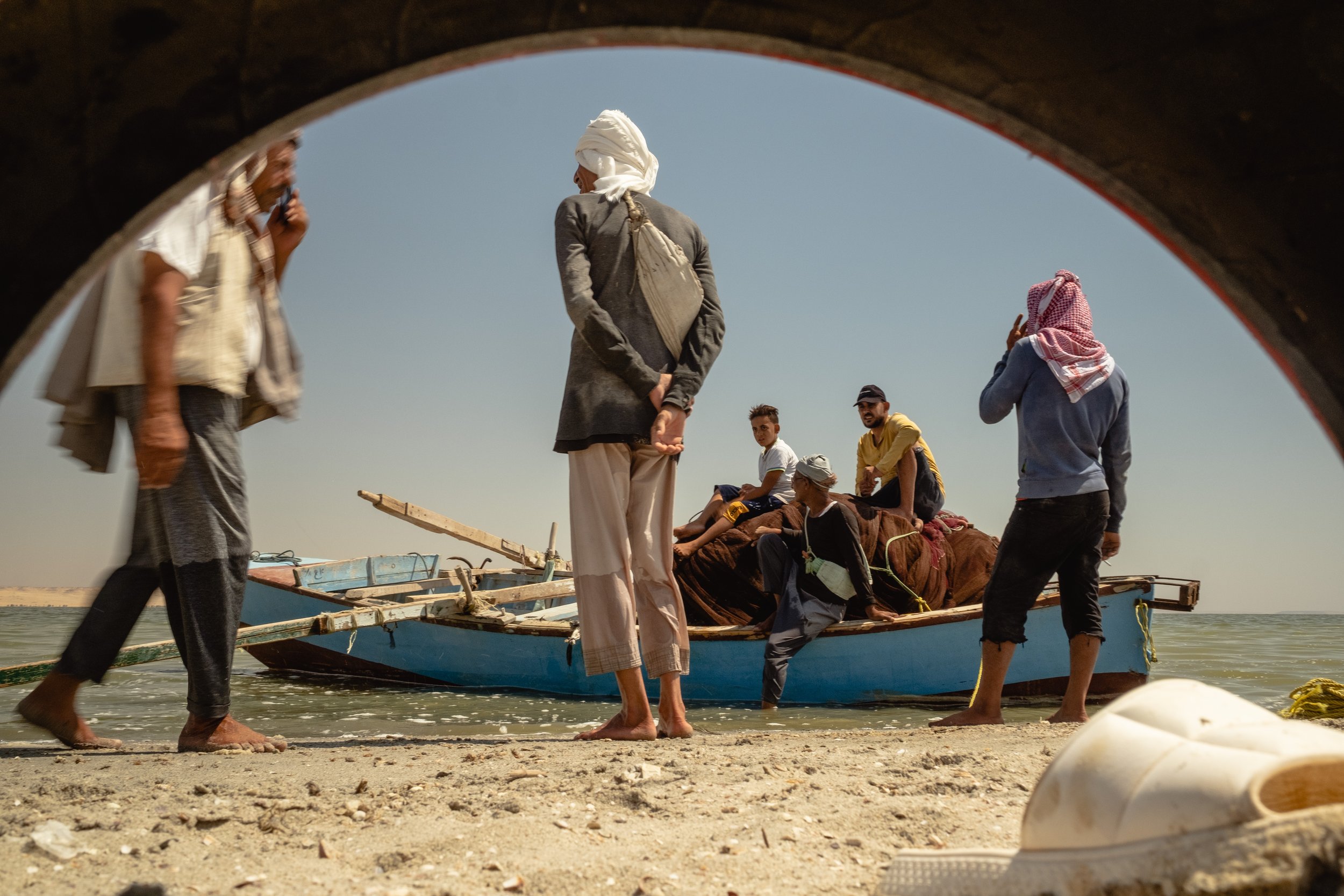
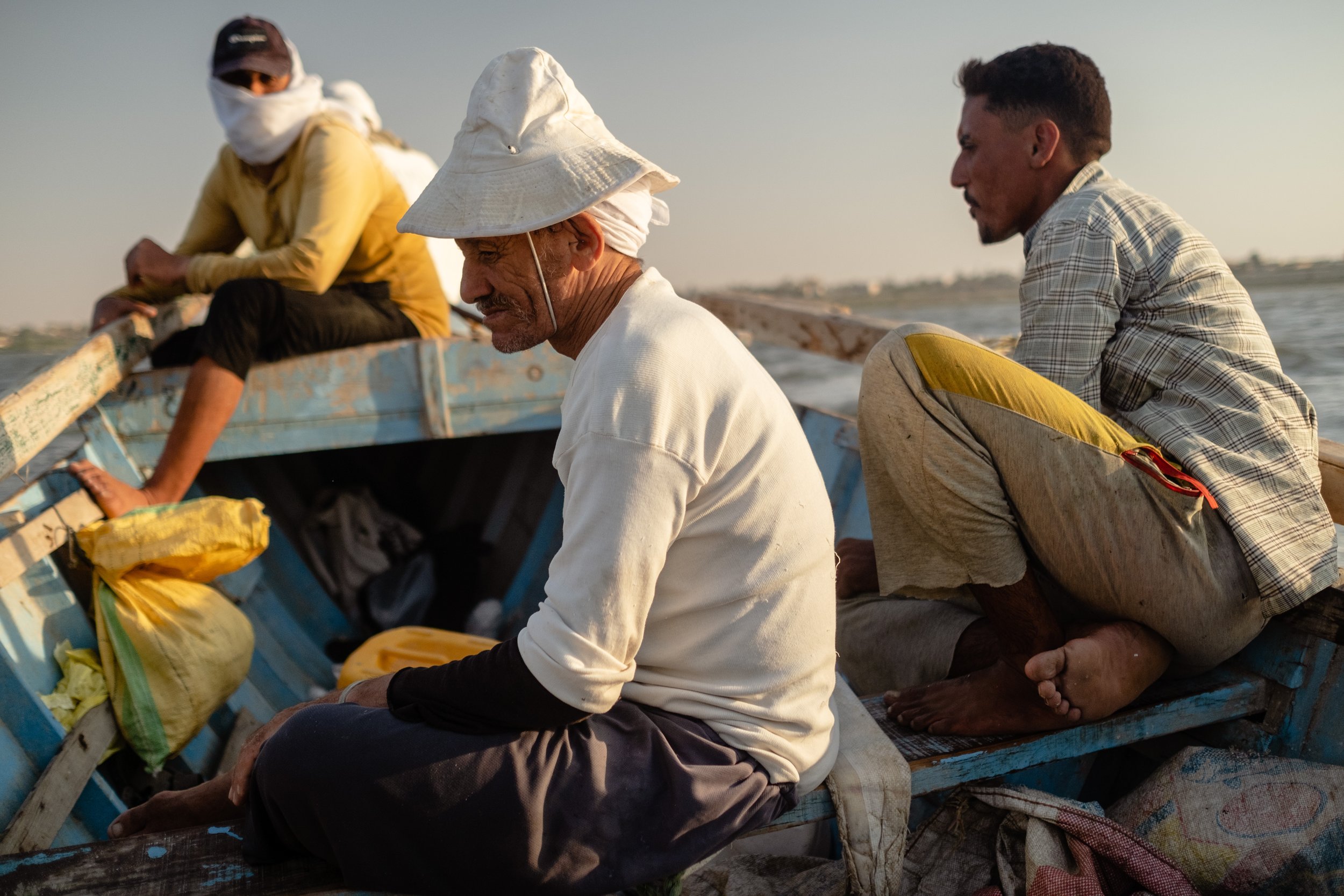
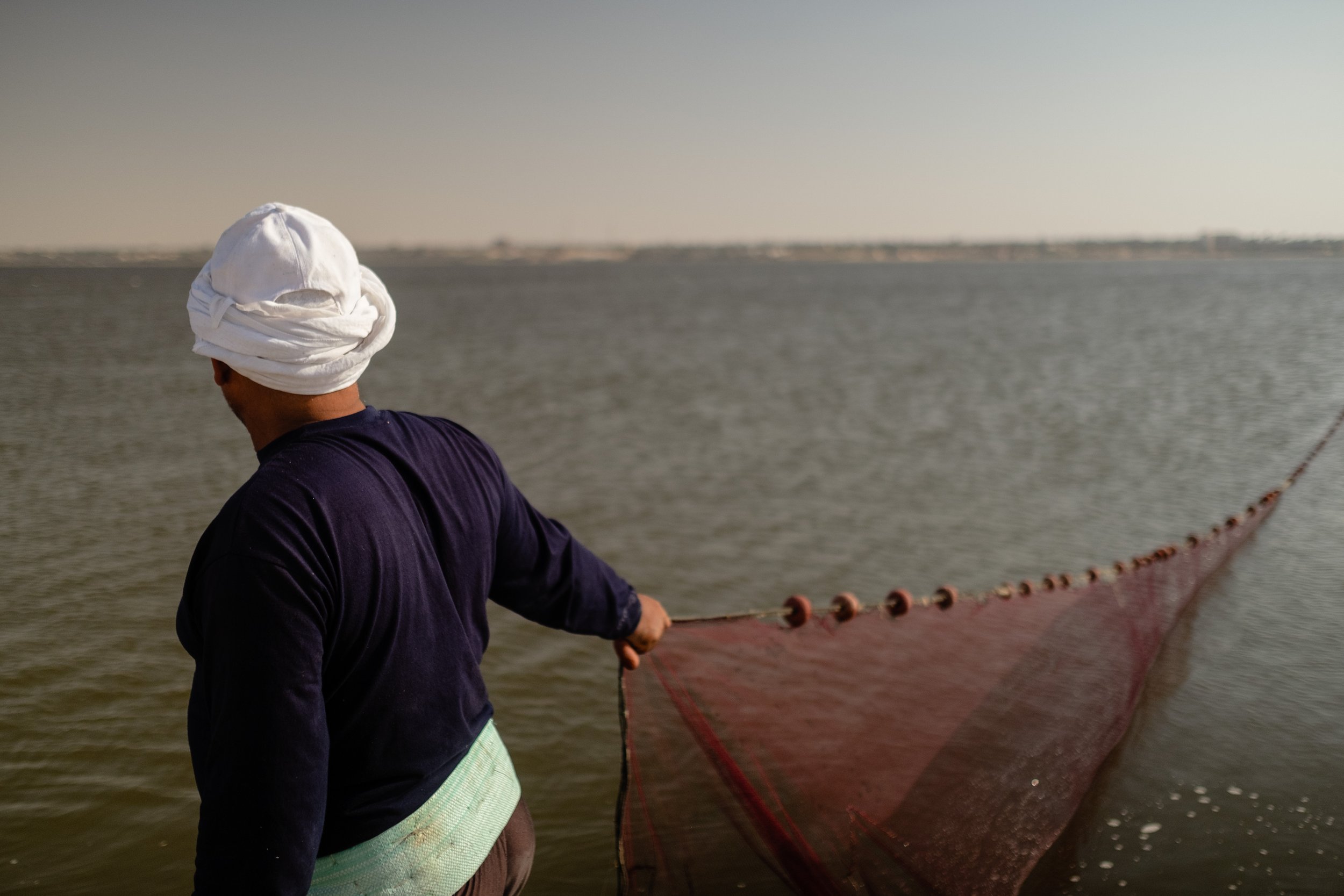
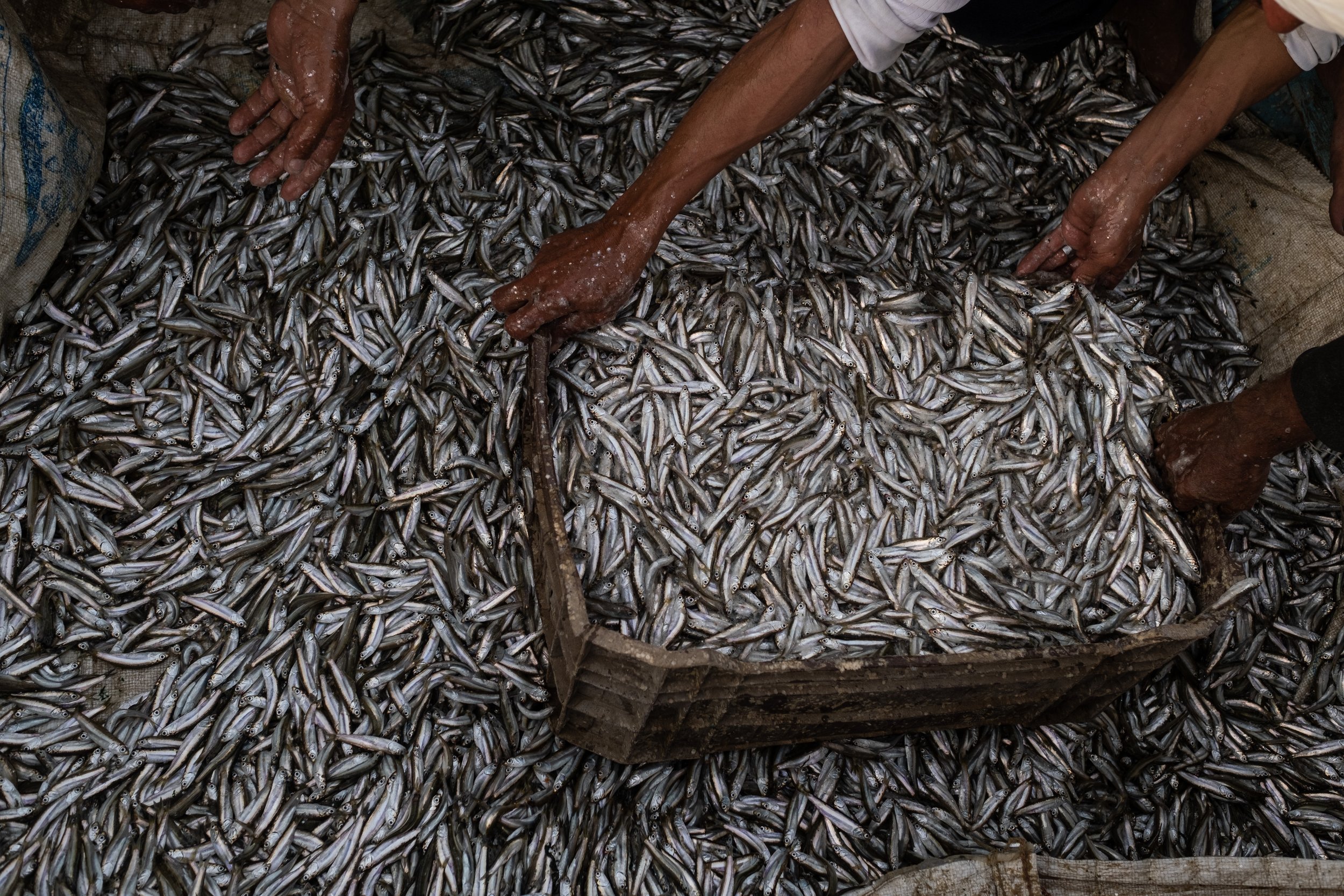
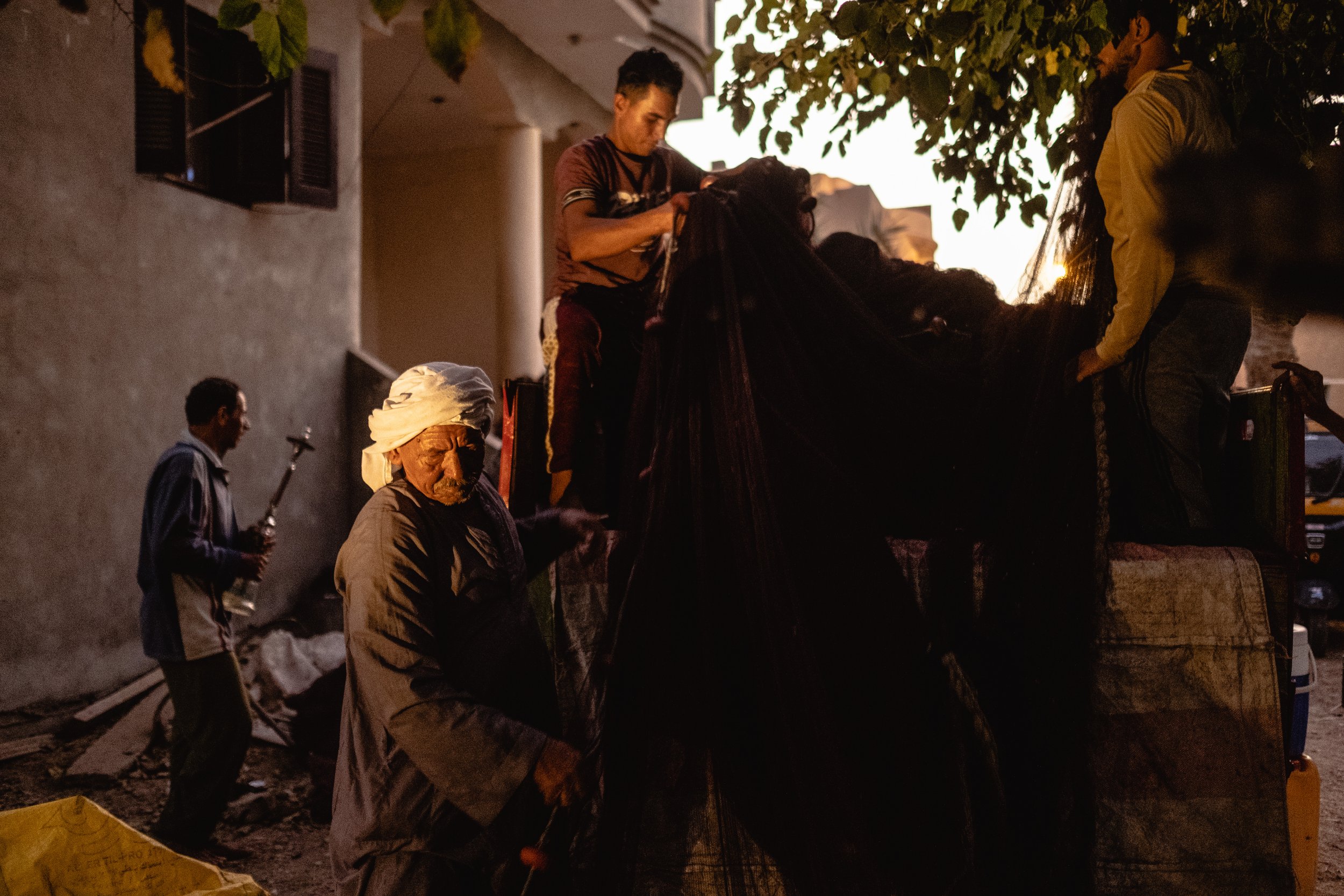
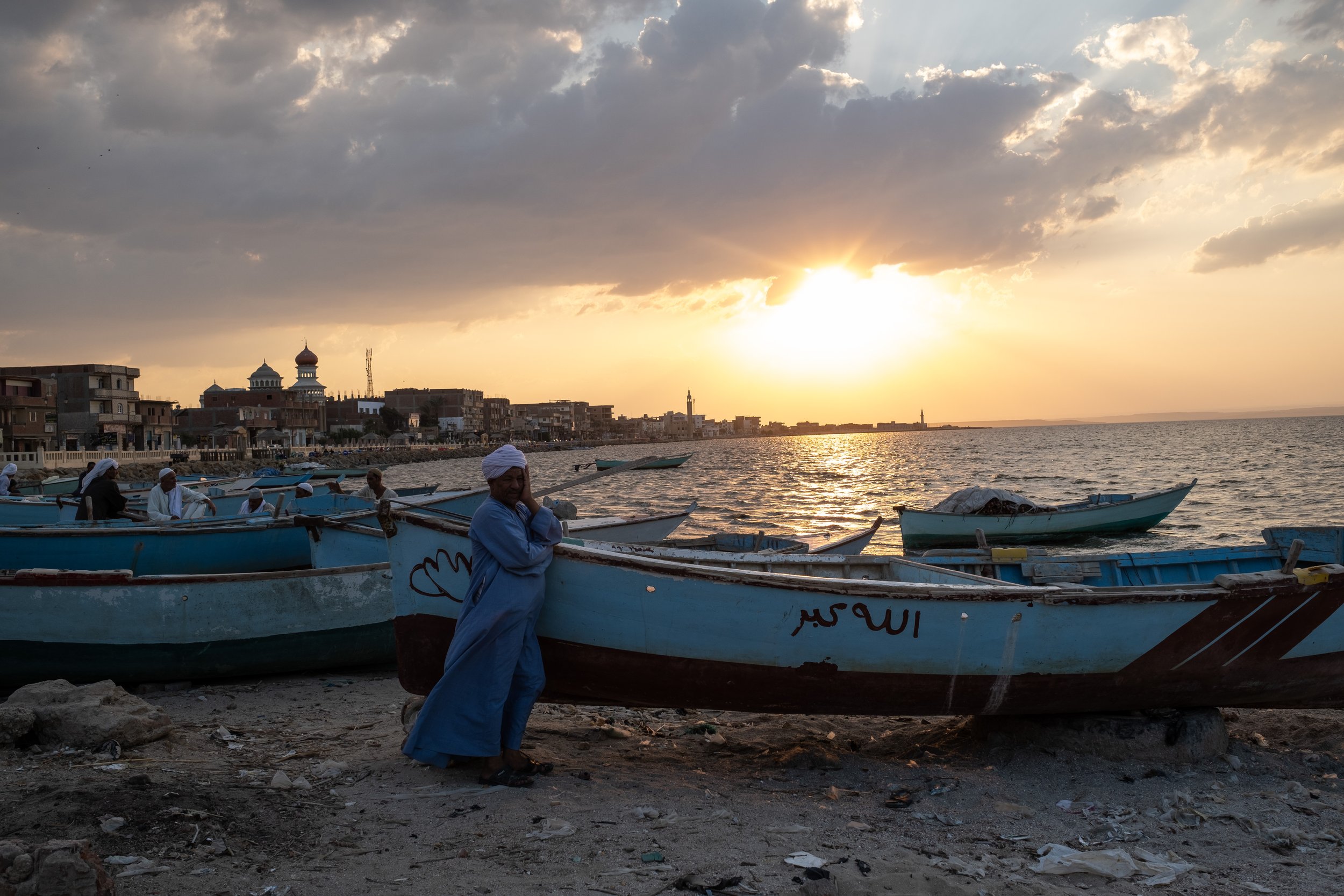
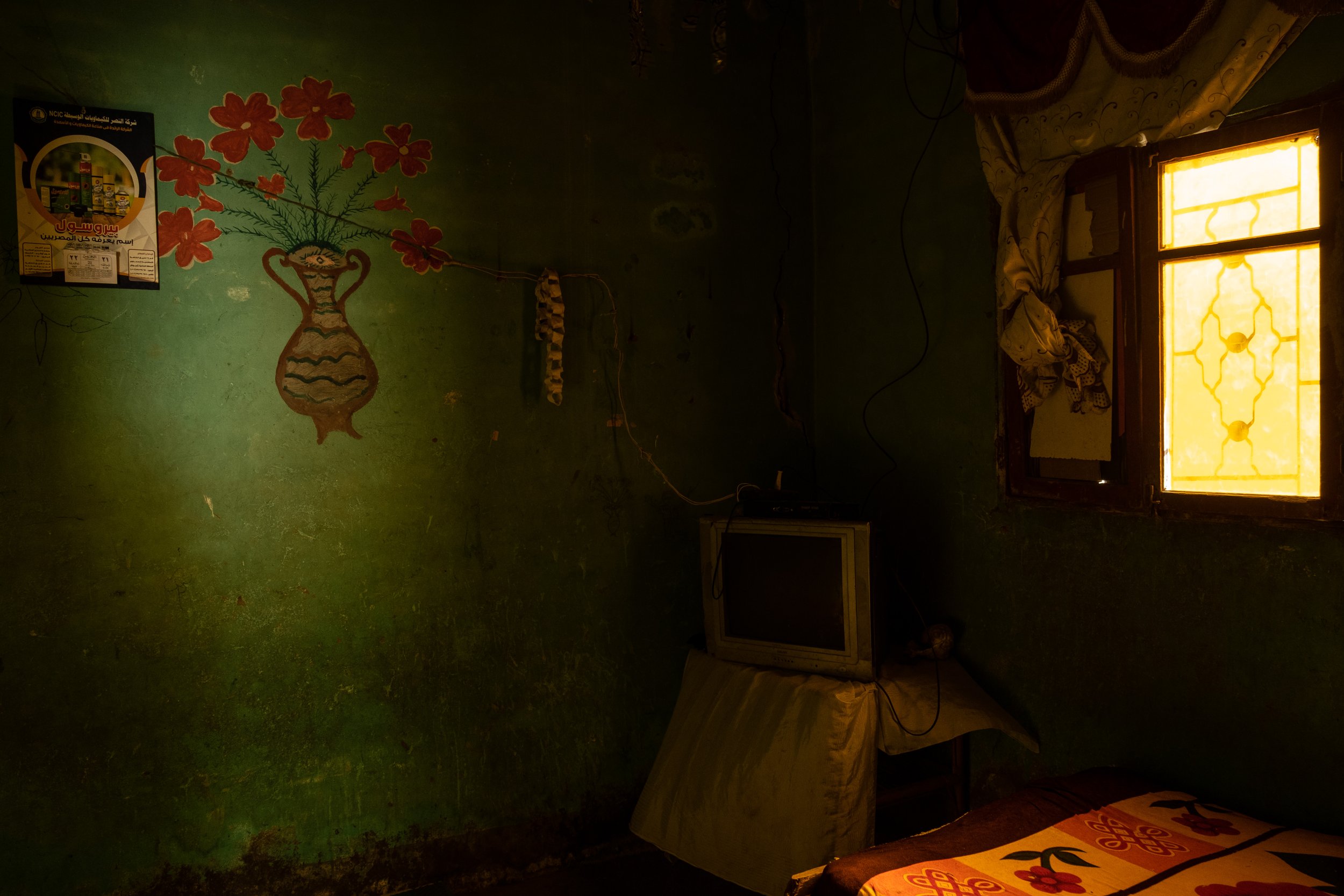
“In my campaign, there were no organizations or NGOs to support the fishermen and their families in the area. I was struggling to find an alternate job for the younger generations of fishermen,” she says. In partnership with PWB, Fahmy is raising money for 12 individuals in the nearby Shakshuka village which will provide medication and financial support for widowed women in the community who have lost their husbands and children in the Aswan travel accident, as well as families whose husbands have been involved in accidents during fishing trips on Lake Qarun.
Fishermen on the shore, hauling in their bait nets. From right to left: Farraj Suleiman, Shazly Mahgoub, Anas Mamdouh and Abdullah Hassan.
“Every project has an impact on the world and I learned of the importance of protecting our land through the other Revolutionary Storyteller Grant stories. I’m learning that everyone has an opportunity and a responsibility to keep our world safe.”
In 2020, Fahmy won the first edition of the Daniele Tamagni Grant and a scholarship at Market Photo Workshop in Johannesburg, South Africa to learn documentary photography. Her work has been described by an international jury as “respectful” photography that amplifies “historical and environmental bonds, shining lights over people’s lives.” The grant and experience helped her enter the next phase of her career in photography. From freelancing for Reuters to working on “The Lost Lake” and other impactful projects such as “Once There Was a Tram” and “The War is Still Here,” Fahmy has followed through on her mission to use her photography as a “bridge” to shed “light on the impact that these issues have on the community.”
Fisherman Darabala Abdel Hadi spends time with his friend on the shore of Lake Qarun in Ezbat Soliman village. Fayoum, Egypt. August 25, 2022.
“Every project has an impact on the world and I learned of the importance of protecting our land through the other Revolutionary Storyteller Grant stories. I’m learning that everyone has an opportunity and a responsibility to keep our world safe,” she says.
This story was created with the support of Aesop and our Revolutionary Storyteller Grant.
Support Fatma’s initiative to provide much-needed assistance to Shakshuka village community members whose livelihoods have been impacted by the deterioration of Lake Qarun.
View of boats in Lake Qarun at sunset. The number of boats operating in the lake has decreased from 605 to ten.









